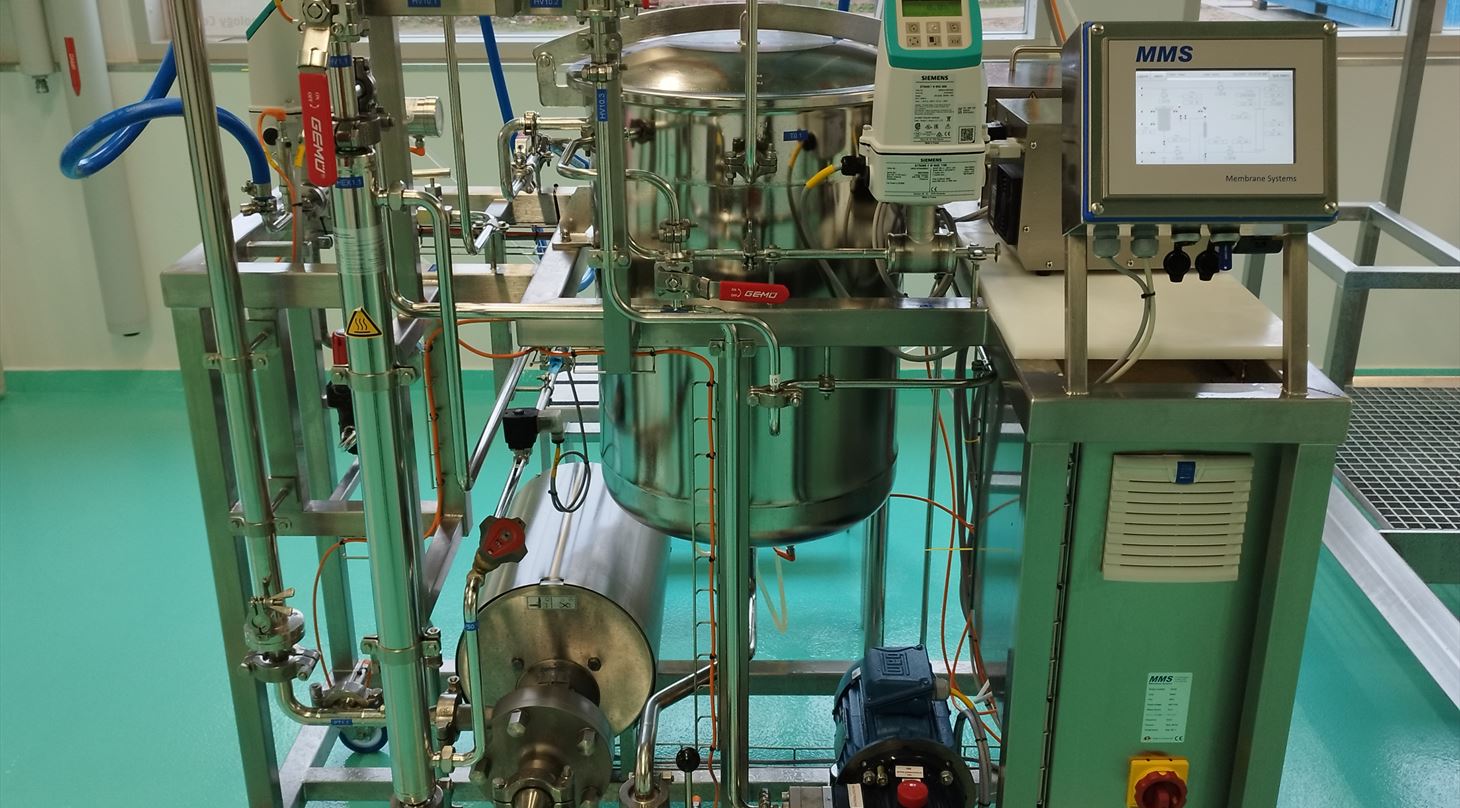
Filtration on a pilot scale
Membrane filtration is a method used for purification or concentration of a liquid and is a typical process after fermentation.
The filtration process is carried out using a technique called crossflow filtration, where the liquid to be separated flows through a membrane in a loop, creating a pressure. This pressure then pushes molecules smaller than the given pore size through the membrane wall.
Our pilot membrane filtration system
Our membrane filtration system (MM C7 system) is an easily usable pilot membrane unit for microfiltration and ultrafiltration tasks. It can test various applications such as fractionation, purification, and concentration of molecules and can be equipped with different types of modules for testing purposes.
Specifications:
Intended use | Liquid food products and aqueous solutions |
CIP tank volume | 35 l |
Working pressure | ~0.5 - 5bar |
Working temperature | 5 - 80 °C (limitations due to membrane possible, heating/cooling water required) |
Feed pump flow rate | Batch operation: ~1 - 4 m3/h @ 5bar |
Circulation pump flow rate | Up to 40 m3/h @ 2 bar |
How can Danish Technological Institute help you?
The filtration system is part of Danish Technological Institute's Biosolutions Technology Center, where we offer laboratory and pilot testing in the field of biorefining and biofermentation. Our equipment is often involved as a subprocess in the development of innovative products - either in research and development projects or in direct collaborations with companies.
It is also possible to perform a single filtration test on a specific biomass, and we also offer lease production over longer periods.
Offer and prices
- If you are interested, you can contact Anders Højmose Thrane.